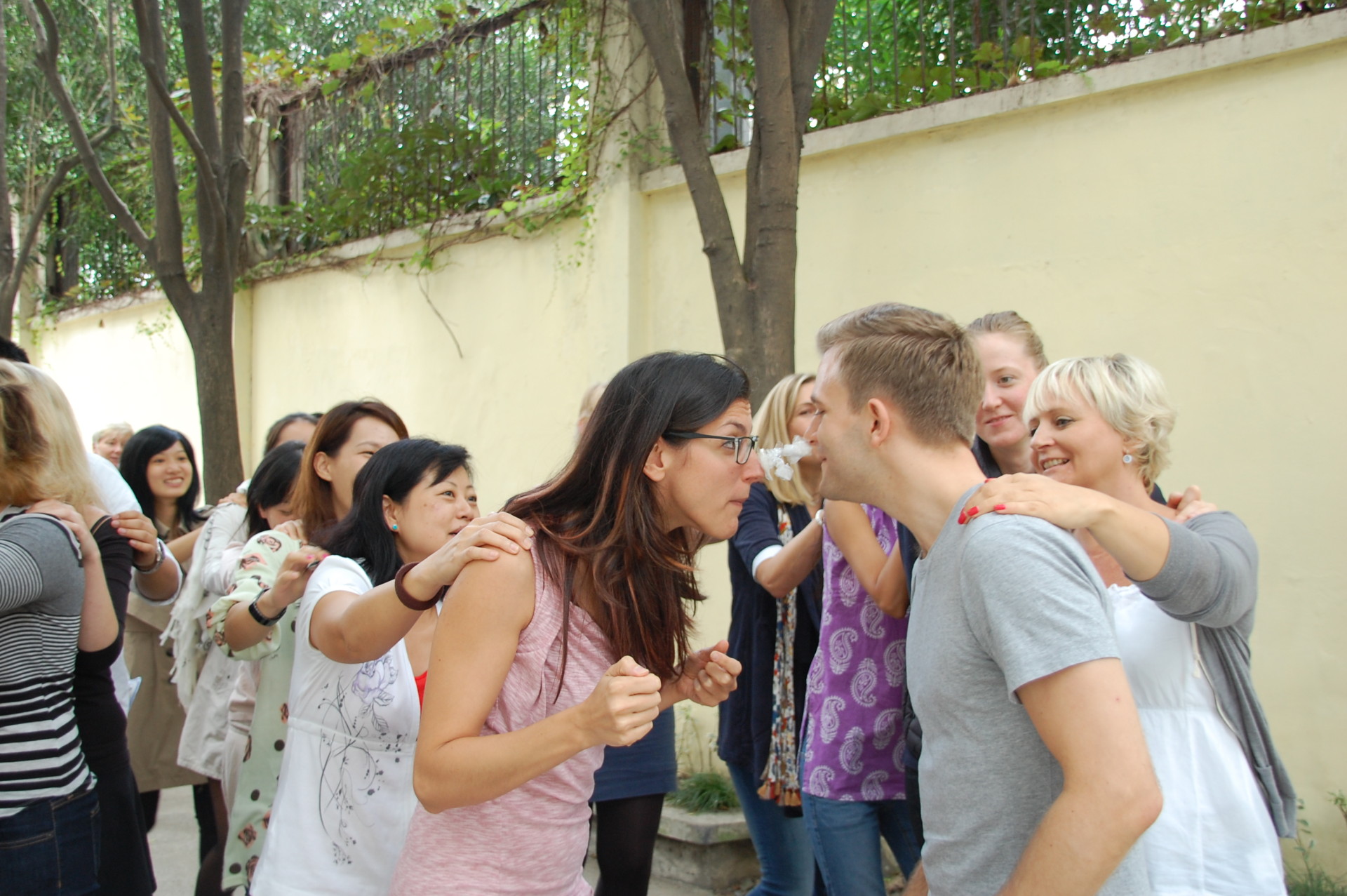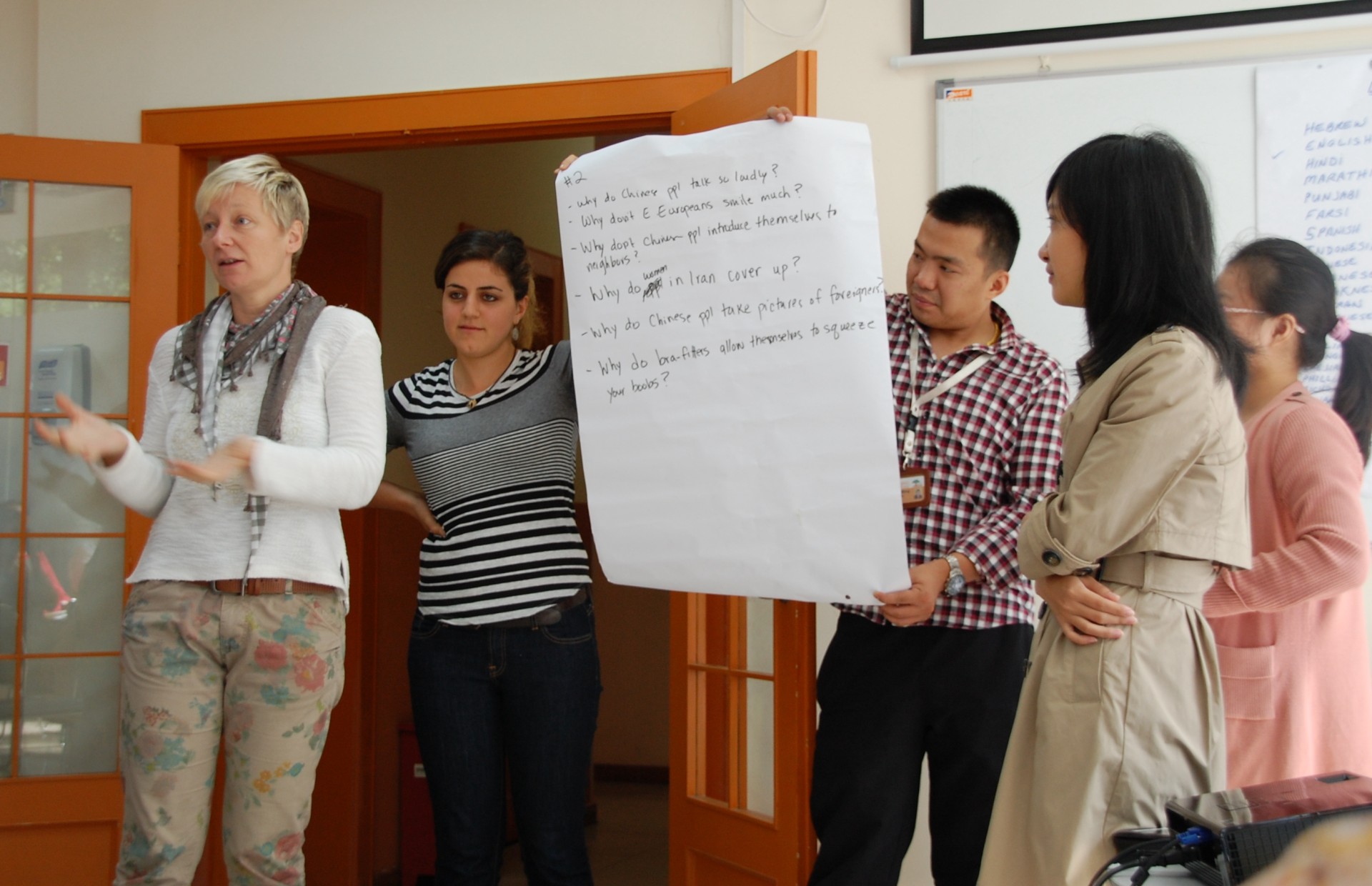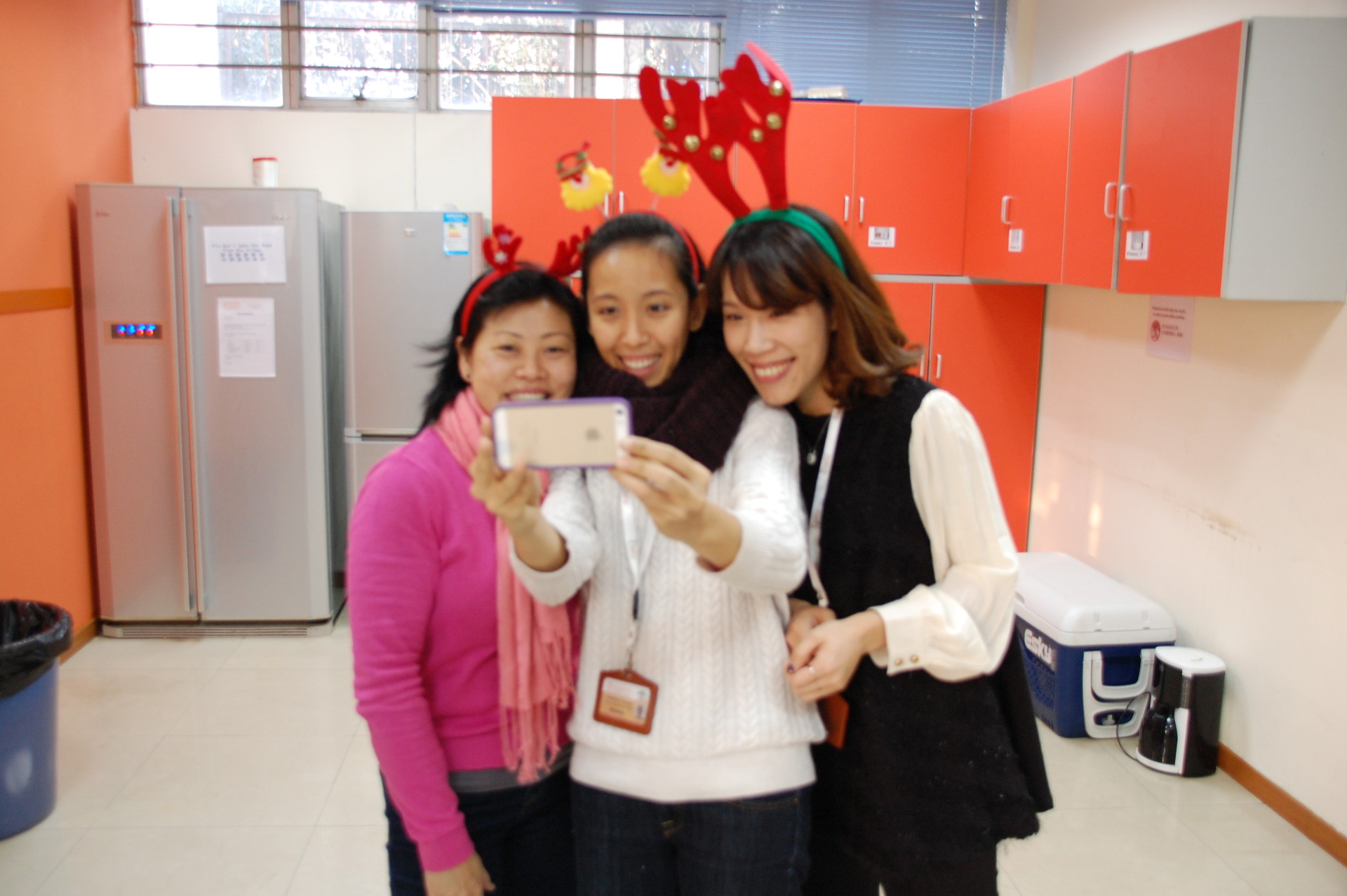Recently, we conducted a demographic study of ELG’s staff (ok, we asked and counted) and realized just how diverse we are. We found that our 70 staff members come from over 20 countries and many cities in China. Together we speak over 30 languages and dialects. Our diversity also spans age (23-70) and ethnicity (just too many to name). Our most homogenous area is our gender ratio, though not surprising for an education organization: our ratio of men to women is about 1:7!
In the spirit of celebrating our diversity, we asked a few staff members to tell us more about how they experience it.
1. You’ll be surprised by what you find out about yourself.
“I think you find out if you are the kind of person who can hang it in another culture or if you need a safety net. I liked ELG because of what it exposed in me. I felt I was a very open-minded person, very non-judgmental. But having been here for a while you realize you have prejudices; you don’t understand people and then you start to reflect why. Maybe that person is approaching it from a different direction but maybe they’re being more objective. I learned a lot about my own assumptions.” – Robin Shepard, Early Intervention Program Leader (Pudong). Robin is from Portland, Oregon and speaks English, survival Mandarin, and basic French.
“I realized, after working at ELG for a while, that I had this irrational belief that all foreigners spoke perfect English, regardless of their mother tongue. Then I started working with Italians, Danes, Koreans, and it struck me how silly this idea was. It’s really helped my confidence in my own English skills.” – Tiffany Liang, Program Assistant. Tiffany is from Shanghai, China and speaks English, Mandarin, Shanghainese… and a little bit of Korean.
2. Yet it’s super fun and easier than you think.
“It’s amazing; I had never worked in such an international setting before, but I find it’s easy to work together because what we do have in common is how much we care about the children we work with.” – Alice Wen, Early Intervention Program Leader (Puxi) and Occupational Therapist. Alice is from Taipei, Taiwan, grew up in Australia, and speaks English, Chinese, Taiwanese dialects, and a little bit of Japanese.
“I really enjoy it. Now, amongst the three program assistants in my program room, we have three continents represented. It’s cool. I am learning so much about different cultures, and everyone is really accepting of each other.” – Tiffany Liang, Program Assistant.
3. Professional growth is accelerated.
“It challenges the way you do things. It can make small everyday things more difficult, as certain assumptions are different. But when we sit and talk with the specialists from the Philippines or people from the States or local talent here in China they have such a unique background coming in. At ELG we have so many different experiences, which are not just bound in one culture or one cultural view. I feel we have a richer pool of experience and much more to offer.” – Patrick Hoffmann, Life Skills Program Leader. Patrick is from Copenhagen, Denmark and speaks English, Danish, and pretty good Mandarin.
4. And having an open attitude is everything.
“I think a lot of us have had international experiences, so we know what it is to be different. People at ELG don’t tend to think their own cultural opinions are the only correct opinions, so people are more open to different points of view. I am exposed to a lot of new ideas.” – QianHan Xiong, Educational Psychologist. Han is from Hunan, China, studied in England, and speaks English, Chinese, and a Hunan dialect called Chang De.
“You have to have a very open attitude to everything. Our staff is from 19 different countries, so everyone has their own style of doing their job. I think it gives you such a wonderful opportunity to learn.” – Chantal Chen, Occupational Therapist. Chantal is from Kaohsiung, Taiwan and speaks English, Mandarin, and a Taiwanese dialect.
5. Diversity generates new ways of being, new ideas, and even new cultures.
“I grew up in a bilingual environment, so I find that I kind of fit in here. I grew up in an Asian culture, but I went to school in the West, so I often had this sort of identity conflict within me. I was surprised to find that many people here share that, or have their own unique identities. We look like we are misfits, but we actually fit quite well!” – Alice Wen, Early Intervention Program Leader (Puxi) and Occupational Therapist.
“The interpersonal side is more enjoyable because when people who come from lots of different cultures and countries come together, they create a new standard, a new way of doing things. I think it makes everyone so much more accepting.” – Patrick Hoffmann, Program Leader.
6. And it requires us to work much harder at communicating.
“I agree with Patrick, and it’s not just the staff, but also the children who are from all over the world. It’s such a colorful community. ELG has its own culture, because we have so many people of different nationalities. Therefore modes and manners of communication are as diverse as the people. For example, some people can be very blunt, others beat around the bush, some people apologize, and some people don’t do small talk! It was surprising to me when I started.” – Amihan Tayag, Speech-Language Pathologist. Amihan is from Kent City, Philippines and lived and worked in the United States for a long time. She’s a native English and Filipino speaker and speaks a bit of Spanish, Japanese, and Korean. She’s now learning Chinese.






